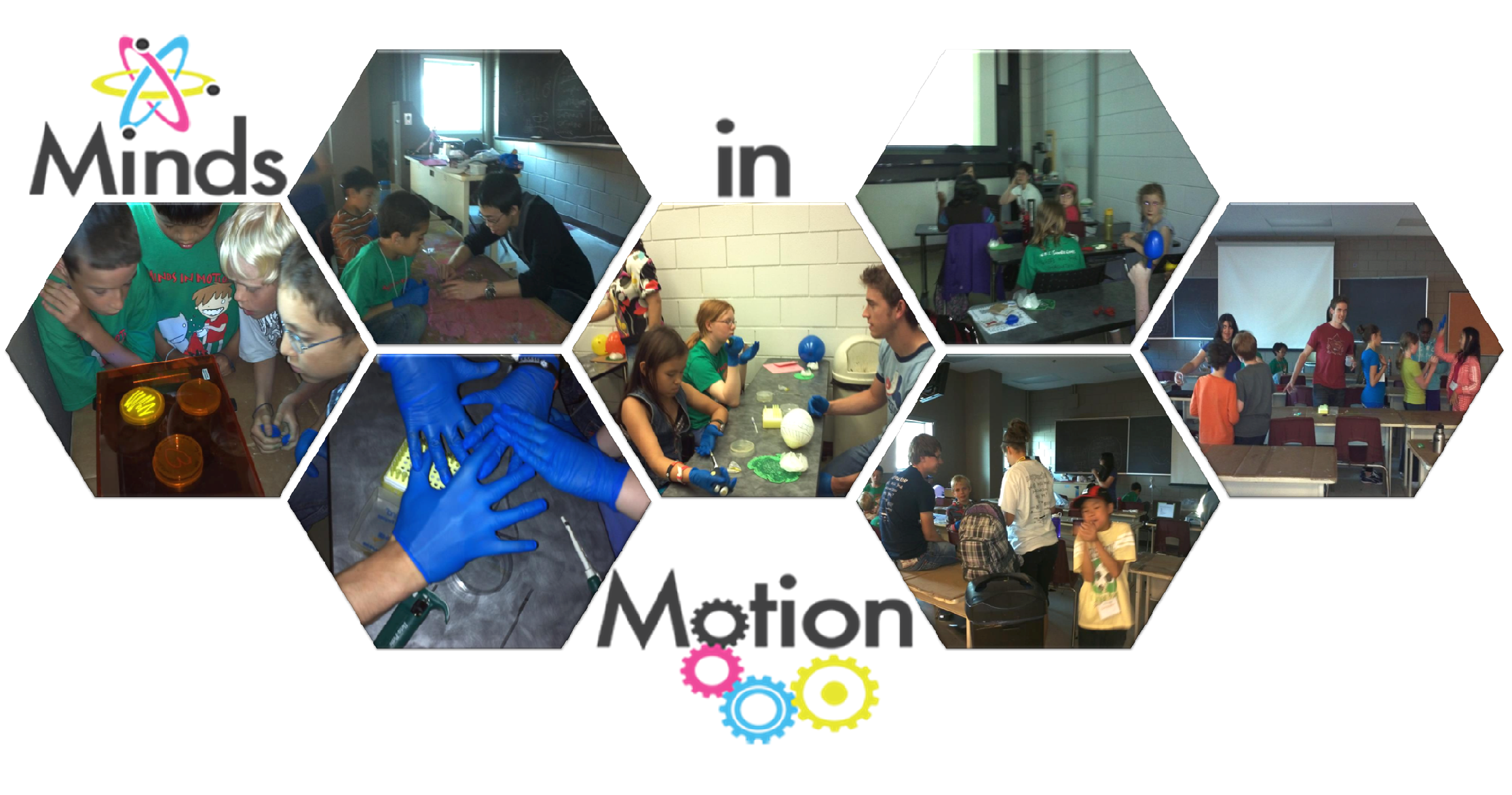Team:Calgary/Outreach/MindsInMotion
From 2012.igem.org
| Line 8: | Line 8: | ||
<h2>Reaching Out To Our Neighbors</h2> | <h2>Reaching Out To Our Neighbors</h2> | ||
| - | <p>It may be difficult to | + | <p>It may be difficult for us iGEMers to comprehend, but the many individuals from the general public have little or no knowledge about synthetic biology. If people have never even heard of this field, they might have trouble accepting synthetic biology as an alternative technology to the accepted norms. This is what motivated our cooperation with Minds in Motion. We wanted to target a young audience, especially those enthusiastic about science, because kids are receptive to new ideas and not suffer the preconceived notions about genetic engineering of their older counterparts.</p> |
<h2>Exploring Synthetic Biology with Minds in Motion</h2> | <h2>Exploring Synthetic Biology with Minds in Motion</h2> | ||
| - | <p>Minds in Motion is a student led organization that | + | <p>Minds in Motion is a student led organization that provides summer camps for kids of all ages at the University of Calgary. Each year, this organization encourages youth to explore science, engineering and technology through unique hands-on projects. Our team was very fortunate to be invited to Minds in Motion to give several guest workshops to kids aged 10 to 12. During this time our goal was to provide our audience with a general understanding of synthetic biology through hands-on activities that showcases proper wet lab techniques. </p> |
<h2>The Activities</h2> | <h2>The Activities</h2> | ||
| - | <p>Using simple common household items (balloons and yarn), the Minds in Motion campers would follow along as we | + | <p>Using simple common household items (balloons and yarn), the Minds in Motion campers would follow along as we explained the idea of inserting a gene into a bacteria. This was done through analogies such as blowing up the balloon to represent transformation or popping the balloon to simulate DNA isolation (<a href="https://2012.igem.org/Team:Calgary/Notebook/Protocols/plasmidminiprep">mini prep</a>). The next activity included using pipettes and simple LB plates to explain the process of preparing bacteria for plating. This activity was meant to explain proper use of equipment, techniques to perform wet lab work, and display bacteria with different colors (via Green Fluorescent Protein). For the last hands-on activity, we attempted to inform the campers the basics of acidity and basicity by testing common liquids and determining their pH. </p> |
<h2>As Kids See Synthetic Biology</h2> | <h2>As Kids See Synthetic Biology</h2> | ||
Revision as of 02:55, 4 October 2012


Hello! iGEM Calgary's wiki functions best with Javascript enabled, especially for mobile devices. We recommend that you enable Javascript on your device for the best wiki-viewing experience. Thanks!
Minds in Motion
Reaching Out To Our Neighbors
It may be difficult for us iGEMers to comprehend, but the many individuals from the general public have little or no knowledge about synthetic biology. If people have never even heard of this field, they might have trouble accepting synthetic biology as an alternative technology to the accepted norms. This is what motivated our cooperation with Minds in Motion. We wanted to target a young audience, especially those enthusiastic about science, because kids are receptive to new ideas and not suffer the preconceived notions about genetic engineering of their older counterparts.
Exploring Synthetic Biology with Minds in Motion
Minds in Motion is a student led organization that provides summer camps for kids of all ages at the University of Calgary. Each year, this organization encourages youth to explore science, engineering and technology through unique hands-on projects. Our team was very fortunate to be invited to Minds in Motion to give several guest workshops to kids aged 10 to 12. During this time our goal was to provide our audience with a general understanding of synthetic biology through hands-on activities that showcases proper wet lab techniques.
The Activities
Using simple common household items (balloons and yarn), the Minds in Motion campers would follow along as we explained the idea of inserting a gene into a bacteria. This was done through analogies such as blowing up the balloon to represent transformation or popping the balloon to simulate DNA isolation (mini prep). The next activity included using pipettes and simple LB plates to explain the process of preparing bacteria for plating. This activity was meant to explain proper use of equipment, techniques to perform wet lab work, and display bacteria with different colors (via Green Fluorescent Protein). For the last hands-on activity, we attempted to inform the campers the basics of acidity and basicity by testing common liquids and determining their pH.
As Kids See Synthetic Biology
In working with the participants at Minds in Motion, it was evident that the kids were intrigued with the idea of synthetic biology. Throughout the presentation, there was constant active participation from the audience and many engaging questions that furthered the discussion. Lastly, at the end of the presentation, we asked the kids to describe something new that they learned from our visit. Surprisingly, everyone had something to talk about. Some mentioned the neat things that synthetic biologists have done like making rats glow, others talked about proper techniques and use of equipment. Another time, we received a thank you card from the kids at the Minds in Motion as a token of appreciation for being a special guest.
 "
"
